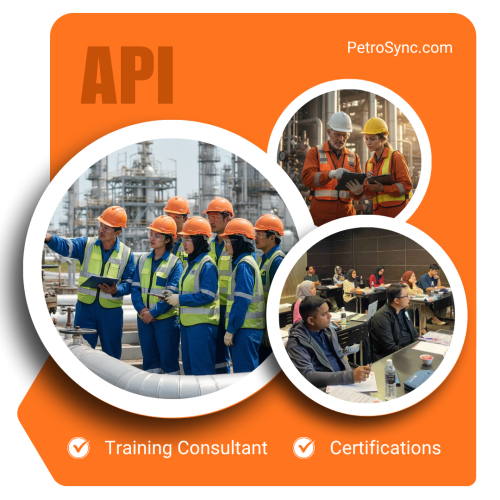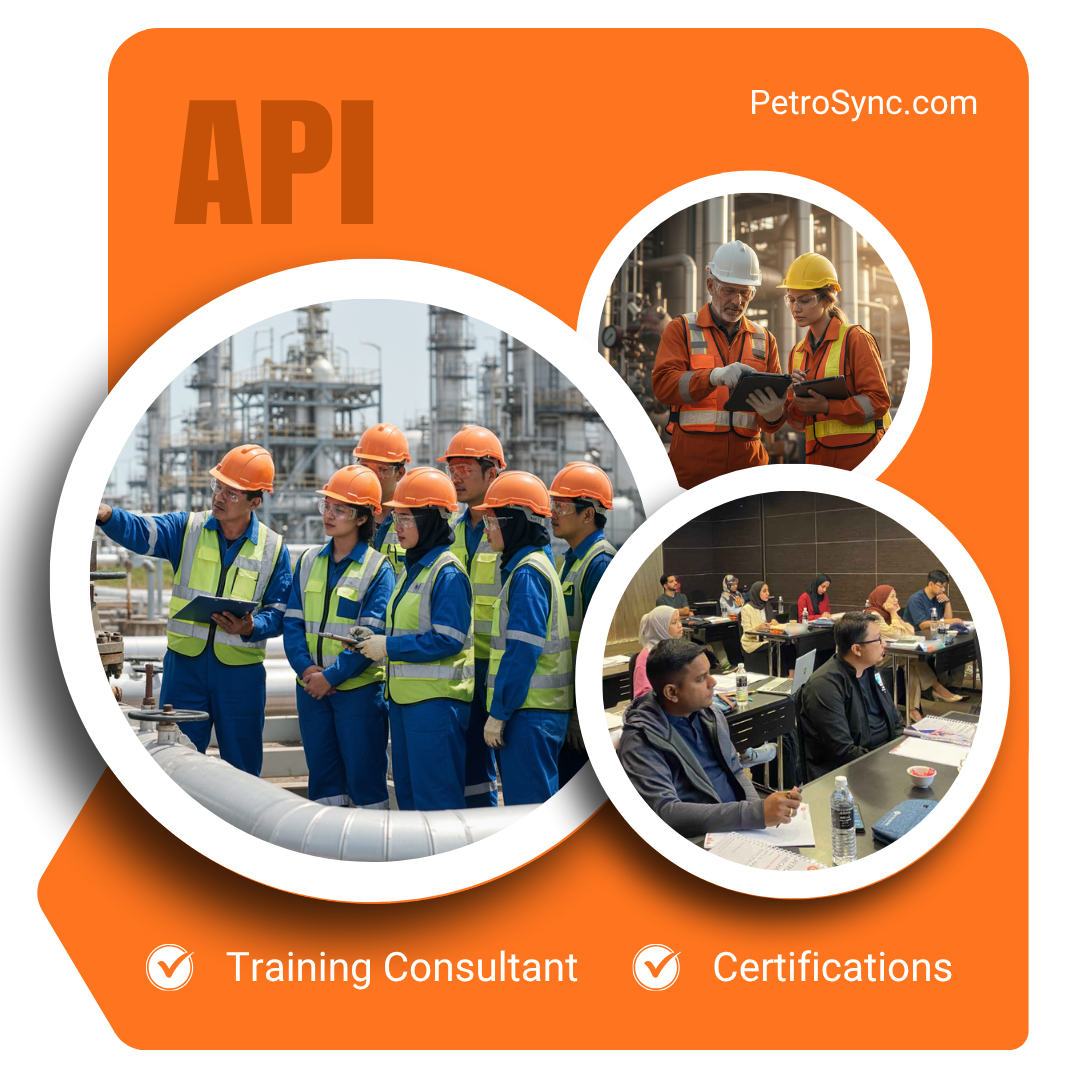In the oil and gas, petrochemical, and energy industries, safety and efficiency are critical factors that ensure long-term operational success. Among the essential certifications required for professionals in these industries is the API 510 certification. This credential verifies a professional’s expertise in inspecting pressure vessel, ensuring that industry standards and regulations are met.
If you want to advance your career in the oil and gas industry, you need to comprehend the API 510 certification exam.
Table of Contents
ToggleWhat Is API 510?

API 510 is an internationally recognized certification provided by the American Petroleum Institute (API). It focuses on the inspection, repair, alteration, and rerating of in-service pressure vessels. Pressure vessels play an important part in oil refineries, chemical plants, and other sectors that use high-pressure systems.
API 510 certification ensures that experts in charge of assessing these vessels have the necessary skills to ensure their safety and functionality. The API 510 inspection assesses pressure vessels internally and externally for operational stability, material quality, storage capacity, safety, measurements, and other factors.
Over time, technological advancements and evolving inspection techniques have changed the way professionals apply the API 510 code and its methods. Certified API 510 inspectors actively identify potential issues — such as corrosion, material failure, or design flaws—that could lead to catastrophic failures if left unaddressed.
These inspectors are critical to maintaining operational efficiency and safety in the sector as part of a stringent quality control system.
How To Apply For API 510 Exam
The API 510 exam application process is simple, however some prerequisites are required. First and foremost, candidates must meet specific educational and experience requirements. API typically needs candidates to have at least one to five years of experience dealing with pressure vessels, depending on their educational background.
For example, candidates with no formal education but five years of practical experience can still take the exam. The application process can be performed online via the API’s certification portal. You must create an account, present required evidence for your qualifications, and pay the exam price.
API recommends that you apply well in advance because processing can take some time. After your application has been approved, you will be provided information on how to schedule your exam at an approved testing facility or through an online proctoring service.
How Hard Is API 510 Exam
The complexity of the API 510 exam might vary depending on an individual’s level of preparation and expertise. It is considered a difficult certification since it involves a thorough understanding of pressure vessel inspection, applicable rules, and standards. The exam is designed to assess both theoretical and practical knowledge of pressure vessel codes, such as the ASME Boiler and Pressure Vessel Code (Section VIII) and the API 510 standard.
The exam is divided into two sections: open book and closed book. The closed-book component assesses your ability to recall essential facts without reference materials, whereas the open-book portion permits applicants to consult specific documents during the exam. However, leaning too heavily on reference books can be a mistake, as time is limited and familiarity with the material is required for a passing grade.
Success on the API 510 exam is primarily dependent on preparation, practical experience, and a thorough understanding of industry requirements. In general, candidates should anticipate to devote significant time and effort to learning the appropriate codes, equations, and inspection methods. While some may find the exam difficult owing to the amount and breadth of the content presented, with proper preparation, it is certainly attainable.
How To Prepare For API 510 Exam
Preparation is key to success on the API 510 exam. Given the extensive knowledge required, it’s recommended that candidates begin studying several months in advance. Here are some suggestions for good preparation:
1. Understand the Codes:
The API 510 certification builds on several codes, including API 510, ASME Section VIII, and API 571. You must thoroughly understand these codes and their application to pressure vessels. Focus your review on the sections most likely to appear on the exam.
2. Take Practice Exams:
Practice examinations are one of the most effective strategies to prepare for the API 510 exam. These simulate the real test and help you find areas that require additional study. PetroSync, for example, provides a variety of mock examinations that are similar to the actual API 510 exam style, providing you a better knowledge of the types of questions to expect.
3. Join a Training Program:
PetroSync’s planned training sessions give a focused curriculum that covers all of the exam’s essential topics. Participants typically study both theoretical and practical case studies in these programs to understand how the rules and norms apply in the real world.
4. Create a Study Schedule:
With so much stuff to cover, it’s easy to become overwhelmed. Create a study regimen that helps you to divide the content into small chunks. Focus on different elements each week, and make sure you give ample time for revision.
5. Consult with Industry Experts:
Contact industry professionals who have passed the API 510 exam. Their observations can be quite helpful in selecting how to approach specific topics and which areas to prioritize.
How Much Does The 510 API Certification Exam Cost
The API 510 exam costs vary depending on your region and membership status with the American Petroleum Institute (API). Such us :
| Exam Window | Program | Schedule | Application Deadline |
|---|---|---|---|
| January 3 – 24, 2025 | 510 | 6.5 hours | November 1, 2024 |
| May 9 – 30, 2025 | 510 | 6.5 hours | March 7, 2025 |
| September 5 – 26, 2025 | 510 | 6.5 hours | July 4, 2025 |
It’s also worth mentioning that rescheduling or retaking the exam may incur additional expenses. As a result, it is critical to not only prepare thoroughly, but also organize your budget correctly.
How Much Is The Passing Score For API 510
Candidates must obtain at least 80% on the API 510 test, which consists of open-book and closed-book questions. The exam often comprises a large number of equally weighted questions that assess both academic and practical knowledge. In addition, there is a 25-question open-book online exam in which 80% (20 out of 25 correct answers) is necessary. Success requires meticulous planning and good time management skills.
Boost Your API 510 Exam Success with PetroSync’s Expert Training
Preparing for the API 510 exam requires dedication, a solid study plan, and access to quality training resources. PetroSync is here to help you succeed by offering comprehensive API 510 training programs designed by industry experts. Our courses include in-depth reviews of the relevant codes, mock exams, and hands-on practical lessons that will give you the edge you need to pass the exam with confidence.
Investing in your professional development through API 510 certification not only enhances your career prospects but also contributes to safer and more efficient operations in the industry. Take the next step toward becoming an API 510-certified inspector with PetroSync’s expert guidance and support.

Results-oriented and thorough SEO specialist with extensive experience in conducting keyword research, developing and implementing digital website promotion strategies and plans, managing campaigns to develop company websites in the digital world, excellent knowledge of marketing techniques and principles, and attentive strong attention to detail.









